Thou shalt not smash all bugs – Beneficial Insects for Your Garden

Ladybugs are but a few of several “beneficial” insects that should be welcomed in your garden.
When we first think of insects, most picture an annoying mosquito, stinging wasp, or yellow jacket. The typical gardener may frown at the sight of a bug, but homeowners who are into sustainable landscape gardening love them – the beneficial ones, that is. There are plenty of valuable insect species that eat those that may damage your garden. Here’s a look at a few you can rely on for biological pest control, leading to a productive garden that can flourish. Garden gnomes get along with pretty much all wildlife. If we follow their lead and stop spraying or squishing everything that flies or crawls, we all benefit.
LADYBUGS

Colorful and graceful, ladybugs make great pest control partners. They feed on troublesome insects such as mites, fleas, and whiteflies. However, their real specialty is consuming aphids, a highly destructive species to several plants To attract Ladybugs, you’ll need to plant some of their favorite crops, such as dill, yarrow, marigold, or cosmos.
GROUND BEETLES
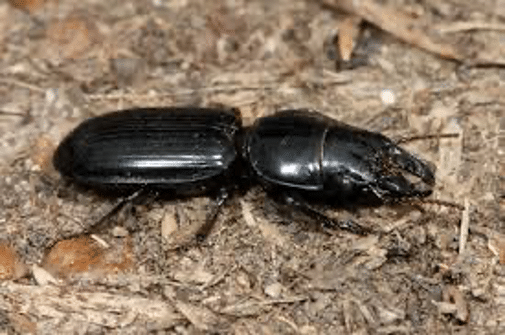
These guys may give you the woolies but ground beetles are quite beneficial in keeping pests out of your garden. They feast on troublesome species such as cutworms, slugs, and caterpillars. One interesting point about ground beetles is that you won’t often see them during the day since they are a nocturnal species. However, they pack a powerful punch as pest control at night. If you want to attract ground beetles, consider planting: evening primrose, clover, asparagus, or rhubarb.
GREEN LACEWINGS
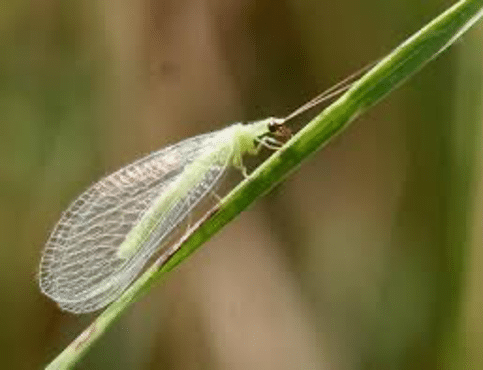
Don’t underestimate them because of their euphonious name. Green lacewings are soldiers when it comes to keeping other pests out of your garden. They eat aphids, whiteflies, leafhoppers, and mealybugs. The interesting thing about green lacewings is that their larvae also eat pests, (not the adults. After all, larvae must eat to grow). To attract green lacewings, consider, planting dill, coriander, and letting any dandelion remain.
APHID MIDGES
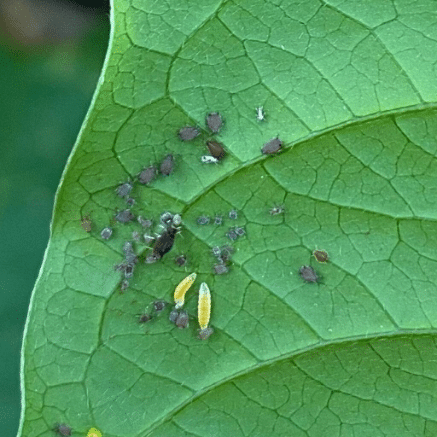
Aphid midges are not to be confused with aphids themselves. Aphid midges are an aphid’s worst nightmare. They’re like the Special Forces of your natural pest control Army for insects because they specialize in eating up to 60 types of destructive aphid species. You can attract them using a simple source of water or with pollen or nectar-rich plants. Dill, peony, marigold, and milkweed also work in attracting aphid midges.
DAMSEL BUGS
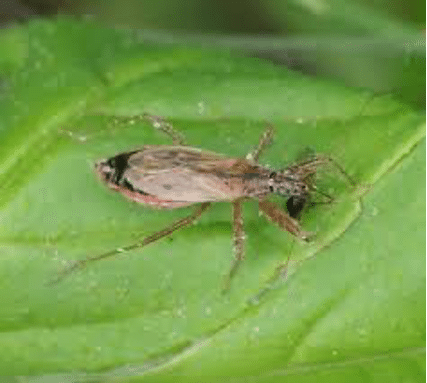
Damsel bugs can protect your garden from damage against several pests, such as caterpillars, aphids, cabbage worms, and mites. Damsel bugs do well in places where they can hide, so be sure to consider this if you want to attract them. They’re also attracted to particular plants and plant matter such as caraway seeds, fennel, and goldenrod.
SPIDERS

We’re technically cheating here because spiders aren’t insects – they are arachnids. Nevertheless, I’ve included them because they might be the most effective natural pesticide nature has to offer. Among all the bugs listed here, spiders eat the broadest range of problematic insects ranging from roaches to grasshoppers and aphids to mosquitoes. Spiders are a marvel for their beautiful and intricate web designs and because their silk can trap any unwanted critter. They don’t need much to thrive in your garden either. My best advice is to do some research and find out exactly what harmful spiders look like so you can smash the right ones (even though even harmful spiders may also be beneficial).
SOLDIER BEETLES

As their name suggests, soldier beetles are warriors that belong in your garden because of their pest-killing instincts and powers. They feed on grasshopper eggs, aphids, and just about any soft-bodied insect. The beauty of soldier bugs is that they do not damage plants or harm people at all. You can attract soldier beetles with plant species such as marigold, goldenrod, and zinnia.
BRACONID WASP
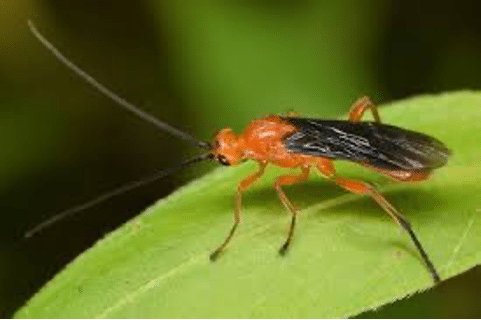
The idea of harboring wasps in your garden may sound like a recipe for fear (and painful stings). But braconid wasps are quite handy when it comes to keeping pests under control. They feed on various harmful insects, including tomato hornworms, aphids, and caterpillars. Braconid wasps can even kill some damaging varieties of caterpillars, making them effective at keeping pests out of your garden. (As the term “caterpillar” refers to so many insects, do some research to make sure you’re not eliminating any beneficial varieties.) You can attract them with different species of yarrow plants as well as parsley and lemon balm.
PRAYING MANTIS
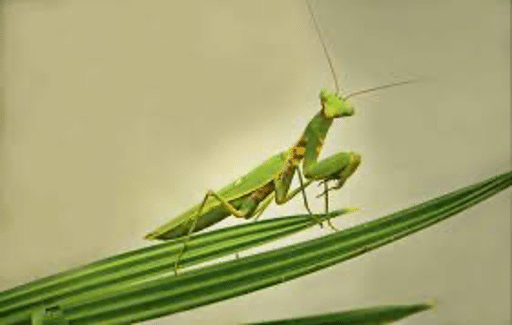
They probably don’t need much of an introduction, but a praying mantis is a welcome guest in your garden. They are known for eating a diverse menu of insects, including caterpillars, beetles, crickets, and gnats. Praying mantises possess serrated claws and the ability to swivel their heads 180 degrees, making them adept predators. You can attract praying mantises by growing marigolds, raspberry, fennel, and dill.
Till next time,
BEE A FAN OF THE GOOD GUYS!
Please share and subscribe! https://ahomeforyourgnome.com/

